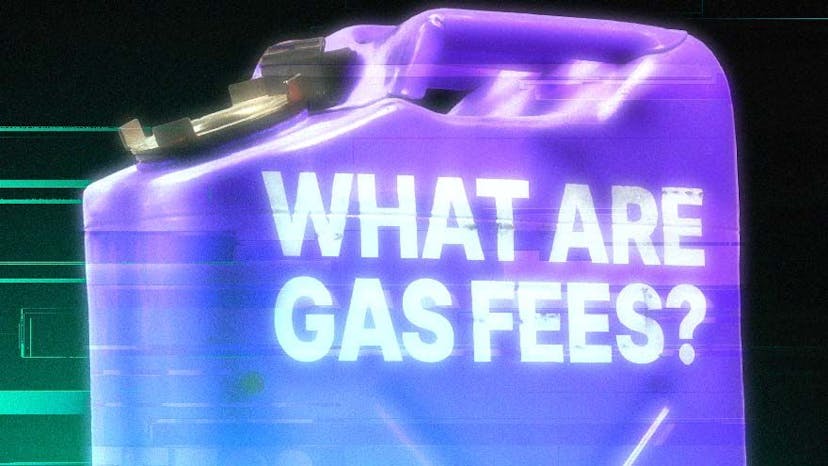Uniswap's Adams Fires Back at Opponents of His Support for Ethereum Upgrade
Adams Says EIP 1153 Hits 'Perfect Sweet Spot' as Critics Argue it Favors DEX
By: Aleksandar Gilbert • Loading...
DeFi
Uniswap founder Hayden Adams lashed out Sunday at critics who have questioned his support for a proposed upgrade to Ethereum code. He called their criticism a “conspiracy theory.”
Adams and others who support the proposal say it is a relatively minor change that would have been included in Ethereum’s next upgrade had it not been competing for attention with two other long-awaited changes.
Sweet Spot
“We chose it as our first major EIP contribution in big part because we thought it hit the perfect sweet spot of desirable, straightforward, and uncontroversial,” he wrote on Twitter Monday evening.
We chose it as our first major EIP contribution in big part because we thought it hit the perfect sweet spot of desirable, straightforward, and uncontroversial 😅
— hayden.eth 🦄 (@haydenzadams) December 12, 2022
But a pair of prominent critics suggest the proposed upgrade, which is called EIP 1153, could benefit Uniswap at the expense of the broader DeFi community.
“One of the big issues I have with it, EIP 1153, is that from a process perspective, you and other people from Uniswap, and Optimism have been pushing very, very hard and I don’t think it’s a very important EIP,” developer Marius van der Wijden told Uniswap advisor Moody Salem on Thursday. “It’s a really, really small improvement to the Ethereum protocol.”
Proposed changes to Ethereum code are debated and implemented by a distributed team of core developers. In September, those developers successfully implemented The Merge, the most significant upgrade in the blockchain’s history. They have since turned their eyes to Shanghai, the code name for the next upgrade.
On Thursday, Ethereum core developers agreed to prioritize enabling the withdrawal of Ether that users had deposited to secure the network. They also chose to delay EIP-4844, a highly anticipated upgrade expected to slash transaction fees.
Nor did they include EIP-1153, championed by developers from Uniswap and Optimism at a November meeting of Ethereum core developers. EIP-1153 was written by prominent core developer Alexey Sharp before the first version of Uniswap launched in 2018.
Salem had argued it wouldn’t delay Shanghai and save users in gas fees.
Core developers declined to include the upgrade in Shanghai, Adams wrote on Twitter Thursday, “in big part *because* us and other projects … pushed for it.” He accused the core developers of working in a “vacuum that explicitly rejects input and support from its biggest users.”
He pins the blame on a contingent of core developers who “view contributions from projects and companies building on top as a threat to Ethereum.”
‘Ethereum governance is considering a rule change to give the next version of one of its biggest (and most socially connected) protocols a huge gas discount.’
Scott Lewis
Others disputed that, saying it was simply not important enough given other priorities within the Ethereum community. But Scott Lewis, the founder of DeFi Pulse, likened Uniswap’s push for EIP-1153 to the crypto equivalent of corporate capture.
“Ethereum governance is considering a rule change to give the next version of one of its biggest (and most socially connected) protocols a huge gas discount,” Lewis wrote. “But with no good disclosures, we don’t know how big the Uniswap v4 discount will be or how big a head start is being gifted.”

Gnosis Executes Its Own Merge in Shift to PoS in Boost for Staking
Layer 1 Will Be the First Blockchain After Ethereum to Adopt New Consensus Mechanism
Adam Cochran, a crypto influencer, said the proposal “aims to solve a real problem, but does so in a problematic manner.”
EIP 1153 would make it “cheap for Uniswap users to spam a transaction on the network, and risk other people paying that gas fee in a socialized way in times of peak demand,” Cochran wrote. It could also give Uniswap an unfair advantage, since the team building the next version of the Uniswap protocol may be working with this upgrade in mind, he continued. Finally, one of the listed use cases enabled by the upgrade is easier implementation of know-your-customer requirements.
Conspiracy Theories
Adams, in turn, accused Cochran of spreading “misinformation” in a sharp-worded tweet that prompted criticism even from Lewis.
“There’s a huge difference between real technical criticism and conspiracy theories about us trying to build an evil monopoly to control the entire industry,” Adams later wrote, “from someone who found out about the eip less than a day prior.”
Salem, addressing critics on Twitter, denied argued EIP-1153 would not enable the proliferation of spam transactions, nor lead to KYC requirements to use Uniswap.
transient storage has nothing to do with kyc, i will not and never have worked on kyc, and all the code i've worked on has no kyc or upgradeability. i explained exactly how transient storage would be used on an ACD call at least 6 months ago.
— Moody 🦄 (@sendmoodz) December 12, 2022
Hudson Jameson, who led the core developer calls from 2016 to 2021, disputed Adams’ characterization of the proposal as noncontroversial. But he also defended their lobbying for it.
“I don’t think there is enough evidence to determine that Uniswap is doing anything nefarious,” he wrote. “They just want this EIP to help their protocol and others have cheaper [transactions].”
Advertisement
Get the best of The Defiant directly in your inbox 💌
Know what matters in Web3 with The Defiant Daily newsletter, every weekday
90k+ investors informed every day. Unsubscribe anytime.
